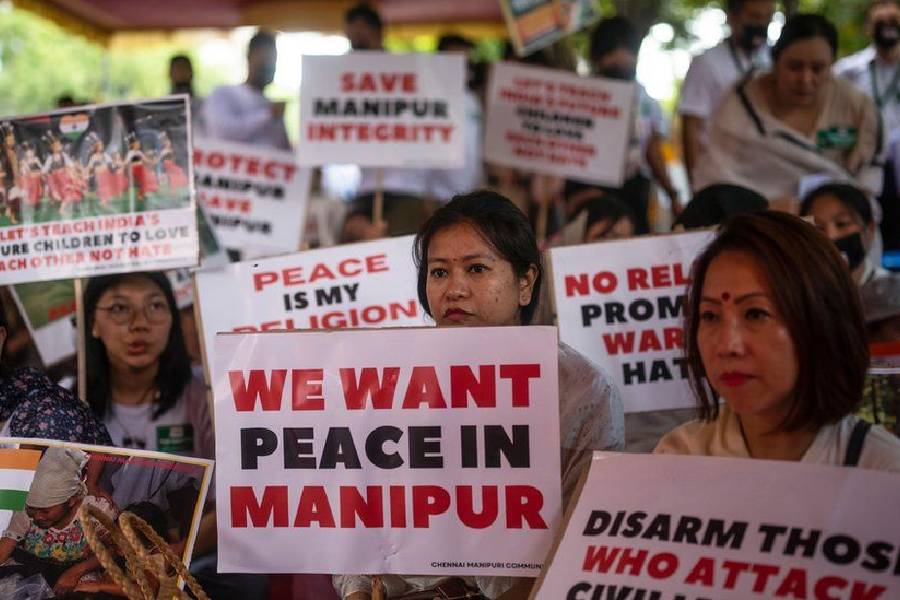The ethnic feud between Meiteis and Kuki-Zo tribes in Manipur is now approaching the two-year mark. But there is still no resolution in sight. Both the state and the Central governments seem content to watch and wait for the warring parties to lose steam and suspend hostilities out of fatigue.
This may very well happen. But it will lead to what in International Relations is referred to as a ‘frozen conflict’. Another ethnic conflict in Manipur, between Nagas and Kukis, had ended this way. The danger is that overt hostilities may cease but their undercurrents will continue to tick on like time bombs.
The principal determinants of these conflicts are nearly the same as those that fuel wars between nations. Therefore, a closer look at what drives bigger wars, as well as a scrutiny of the problems of nationalism, is relevant.
By definition, nationalism is exclusionary. It seeks group consolidation along sharply-defined identities and, then, aggressively asserts the group’s interest at the cost of others. Nationalism also stands on the backbone of military prowess;
the dominant group can, therefore, harm its potential rivals.
Nationalism needs a convenient enemy to fire its own passion. When there are no tangible enemies, nationalist movements conjure up fictitious adversaries so that
they can keep their foundational energy alive. Even in times of peace, nationalism’s need for an enemy is manifest in the never seen but supposedly malevolent ‘foreign hand’.
The professedly amoral ‘Realism’ school in IR tells us that the race for power among nation-states is inevitable and is justified for only by climbing up the power hierarchy is safety guaranteed for each state. In contrast, the ‘Liberalism’ school believes that cooperation in economic spheres is the route to avoid conflict and achieve lasting peace. Liberalism’s more idealistic extension, the ‘Constructionism’ school, argues that nationalism and national identity are dynamic, not static, and are open to value-based changes through interactions among states so as to accommodate each other.
On one side is the thought that conflict is human destiny, and the only way to prevent wars is through military deterrence. On the other side are the theories that see conflicts to be the consequences of poor relationships that can be prevented by mending those very ties. Deciding which of these approaches closely reflect reality has never been easy.
Compounding the dilemma is that wars, or the fear of war, have many domestic uses. There is nothing like the spectre of external aggression or a threat to the integrity of the nation to make a community sink its internal differences. This being so, these threat perceptions are often deliberately manufactured by those holding the reins of political power to divert attention from their own failures on domestic fronts. This is particularly true of weak and clueless leaders.
Few have portrayed the troubling, painful and conflicting pulls of nationalism and national identity more poignantly than Eric Hobsbawm in his book, Fractured Times. One idea recurs in several of the essays in this collection. German Jews were eager to integrate with the German identity in the decades before World War II; however, they wanted to assimilate not with the German nation but with the German middle class. The inference is that if there can be anything as liberal nationalism based on a consensual, constitutional identity, the middle class, which generally cuts across community lines and is united by common professional pursuits and a shared desire for excellence, can serve as the fount of hope.
Perhaps the resolution of many an ethnic conflict in the Northeast, such as the one in Manipur, lies in the realisation that identities need not be rigidly static.
Pradip Phanjoubam is editor, Imphal Review of Arts and Politics











